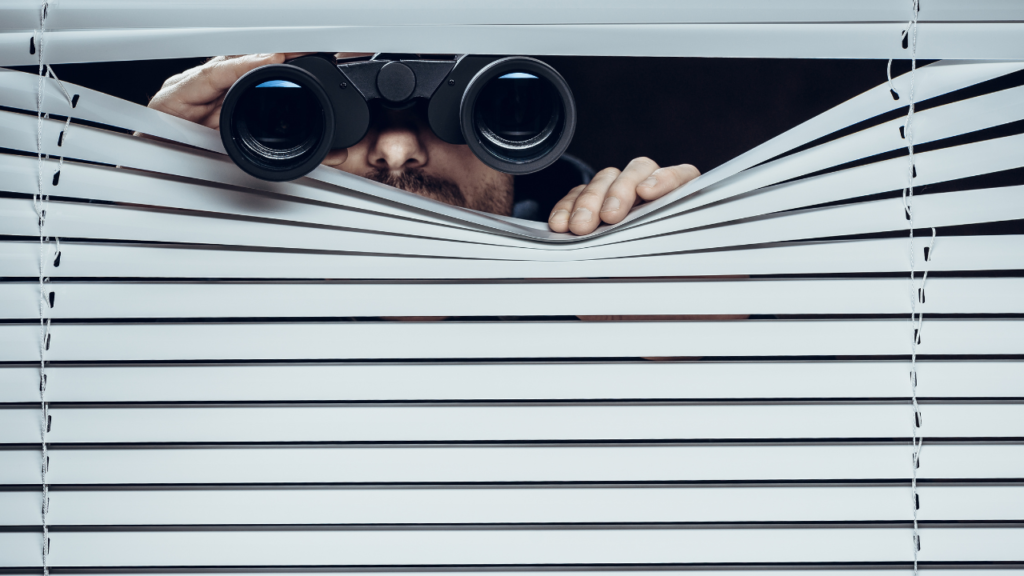In today’s technologically advanced world, the concern of being spied on has become more prevalent than ever. Whether through hidden cameras, audio devices, or other surveillance tools, the invasion of privacy can be both unsettling and distressing. If you suspect that someone has planted spying devices in your home, it’s crucial to handle the situation with care and precision. This article delves into the world of covert surveillance, offering insights on how to identify, counter, and prevent such invasions. Let’s explore the steps you can take to protect your privacy and regain your peace of mind.
Understanding the Threat: What Does “Being Spied On” Mean?
The Rise of Covert Surveillance
With the advent of affordable and sophisticated surveillance technology, the ability to secretly monitor someone has become more accessible. Hidden cameras, microphones, and GPS trackers are just a few examples of devices that can be used to invade someone’s privacy. These gadgets can be hidden in everyday objects, making them difficult to detect.
Common Places Where Spy Devices Can Be Hidden
- Smoke detectors: Modified to contain hidden cameras or microphones.
- Alarm clocks: Equipped with tiny lenses to record video.
- Light fixtures: Used to conceal audio recording devices.
- Power outlets: Altered to house spying equipment.
- Furniture: Cameras or microphones can be embedded within.
Identifying Signs of Being Spied On
Unusual Sounds and Interference
If you hear strange buzzing, clicking, or static noises during phone calls or in certain parts of your home, it might indicate the presence of audio surveillance devices.
Unexpected Objects and Alterations
Look for new or out-of-place objects in your home. Items that seem to have been tampered with or moved can be a red flag.
Battery Drains and Overheating
Unexplained battery drains or overheating of devices like your phone, tablet, or laptop can suggest that they are being used for unauthorized surveillance.
Strange Network Activity
Unusual data usage or unknown devices connected to your home network can indicate that your internet activity is being monitored.
Effective Counter Surveillance Measures
Professional Bug Sweeping Services
Hiring professionals who specialize in detecting and removing surveillance devices is one of the most reliable ways to ensure your privacy. They use advanced equipment to find and neutralize hidden cameras and microphones.
DIY Detection Techniques
- RF Detectors: These devices can detect wireless cameras and microphones by identifying their radio frequency signals.
- Flashlight Method: In a dark room, shine a flashlight around suspicious areas. Camera lenses often reflect light, making them easier to spot.
- Phone Call Test: Make a call and walk around your home. Unusual interference might indicate hidden audio devices.
Securing Your Space
- Change Locks: If you suspect someone has access to your home, change your locks to prevent unauthorized entry.
- Use Privacy Tools: Install covers on webcams, use microphone blockers, and enable security features on smart devices.
- Secure Wi-Fi: Ensure your home network is password-protected and use strong, unique passwords for all devices.
Preventing Future Surveillance
Regular Sweeps and Checks
Regularly check your home for new or unusual items. Make it a habit to conduct periodic sweeps using the methods mentioned above.
Digital Hygiene
- Update Software: Keep all your devices’ software updated to protect against spyware and hacking.
- Use Encryption: Use encrypted messaging and email services to protect your communications.
- Educate Yourself: Stay informed about the latest surveillance technologies and countermeasures.
The Psychological Impact of Being Spied On
Stress and Anxiety
The feeling of being constantly watched can lead to significant stress and anxiety, affecting your mental and emotional well-being.
Trust Issues
Knowing that someone has invaded your privacy can erode trust in personal relationships, making it difficult to feel secure even with close friends and family.
Steps to Regain Peace of Mind
- Seek Support: Talk to a trusted friend, family member, or professional counselor about your concerns.
- Create Safe Spaces: Designate areas in your home where you feel most secure and ensure they are free from surveillance devices.
- Practice Self-Care: Engage in activities that help reduce stress and promote relaxation.
Legal Aspects and Reporting
Understanding Your Rights
Familiarize yourself with the laws regarding surveillance and privacy in your area. In many places, unauthorized surveillance is illegal and punishable by law.
Reporting the Incident
If you discover spying devices, report the incident to the authorities. Provide any evidence you have and cooperate with the investigation.
Taking Legal Action
Consider consulting with a lawyer to explore your options for legal action against the person or entity responsible for the surveillance.
Real-Life Cases and Lessons Learned
High-Profile Incidents
Numerous high-profile cases have brought attention to the issue of covert surveillance. Studying these cases can provide valuable insights into how such invasions occur and how they are handled.
Personal Stories
Hearing from individuals who have experienced being spied on can offer practical advice and emotional support. Learning about their journeys can help you navigate your own situation more effectively.
Conclusion
In an era where technology can easily be used to invade privacy, it is essential to remain vigilant and proactive. Understanding the signs of being spied on, implementing effective countermeasures, and taking steps to prevent future surveillance can help you protect your personal space and peace of mind. Remember, your privacy is a fundamental right, and there are resources and strategies available to safeguard it.







